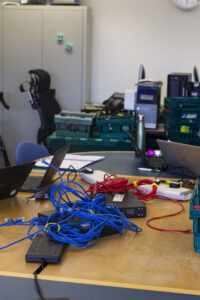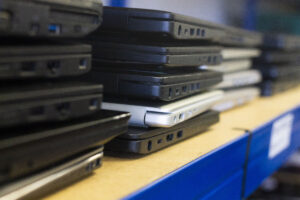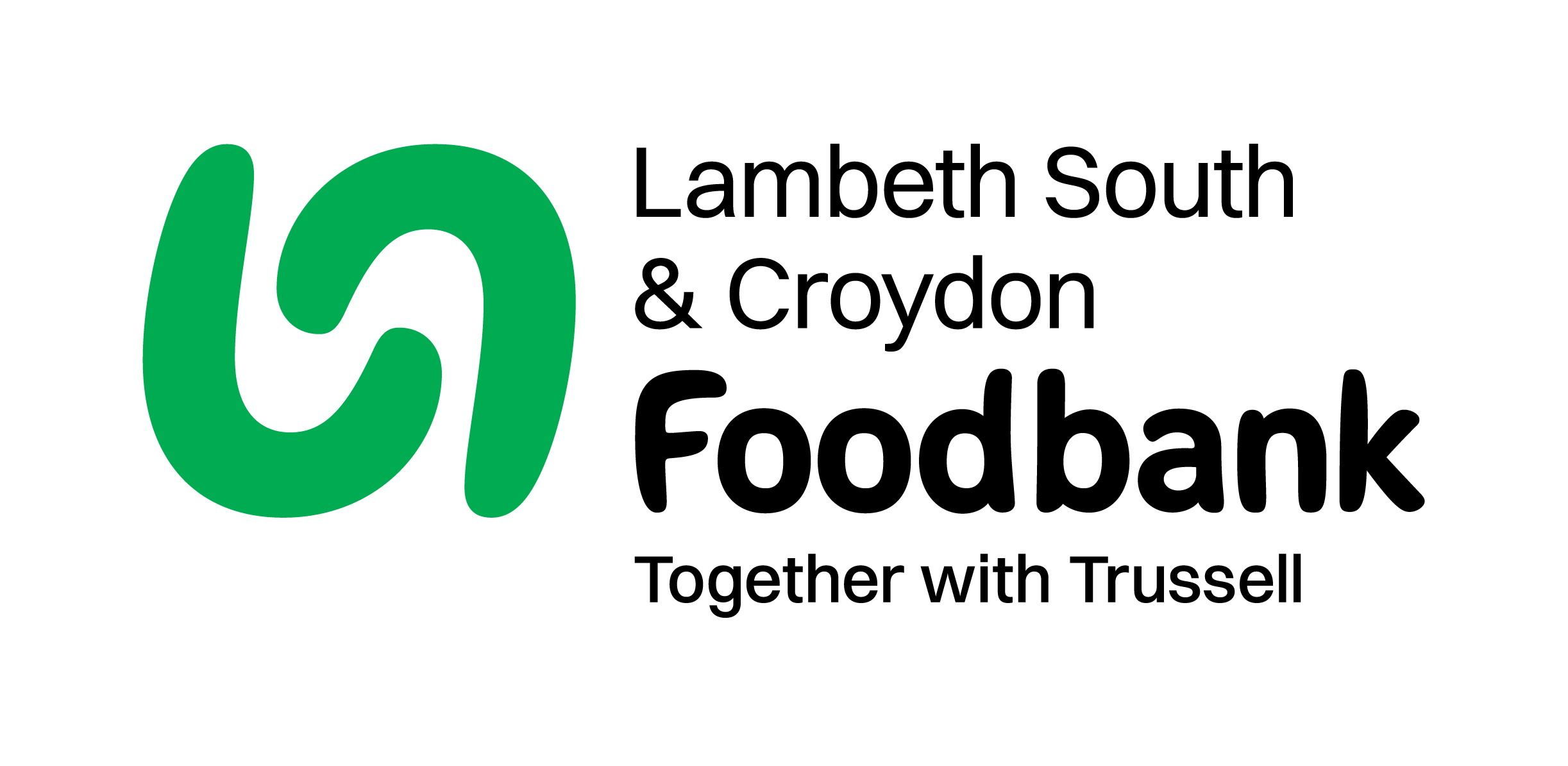News
Addressing the Digital Divide with Community TechAid
12th April 2023
-
Share this:
- Share on facebook
- Share on twitter
- Share on linkedin
 Local grassroots charity Community TechAid has been partnering with Brixton Foodbank to provide further access to technology within the Lambeth and Southwark community, to close the digital divide. We caught up with Cat, Chief Executive Officer at Community TechAid, to find out more about the important work they’ve been doing.
Local grassroots charity Community TechAid has been partnering with Brixton Foodbank to provide further access to technology within the Lambeth and Southwark community, to close the digital divide. We caught up with Cat, Chief Executive Officer at Community TechAid, to find out more about the important work they’ve been doing.
Are you able to tell us a bit more about the work Community TechAid does and the services it provides?
At Community TechAid we provide access to the tools, skills and opportunities for our local Lambeth and Southwark communities to get online. We take in donations of devices, including laptops and smartphones, and with the support of our volunteers, we repair, reuse and refurbish them to pass on to individuals. We work with people who are often already marginalised, facing barriers to housing, healthcare, and other vital services, and who are cut off from local connections because of digital poverty.
We also support our community by delivering digital skills training and coaching, and where possible, providing access to connectivity.
We began in 2020 as a group of volunteers, responding to the desperate need for online access as a result of the lockdown. Since then we’ve supported over 2500 people with a device of their own and continue to work with our community of donors, recipients and volunteers to help our community overcome digital exclusion. The lockdown legacy has pushed much of our lives online and yet thousands remain cut off from the benefits being online can bring.
You’ve been working with Brixton Foodbank for about a year now, please tell us a bit about the kind of work you’ve done with us over that period.
Brixton Foodbank is delivering such important work in our local community, and as a result, meets individuals and families who are often facing incredible challenges. We partner with local organisations working in the community to help identify those in need of our support. Fred and the team will refer people who they think could benefit from access to a device of their own, or additional digital skills coaching. We work with the team to understand how best to support them and will provide a device or connectivity most suitable for them. For example, we were able to support an older client who was struggling to access her fuel vouchers online. She’d also begun to suffer from arthritis which made it much harder to use her smartphone. We provided them with a lightweight laptop and mouse which helped them overcome these challenges and has also supported her to keep in touch with loved ones through video calls.
What are the main barriers your clients face concerning lack of access to technology and the internet?
For many of our clients, the biggest barrier is financial. All of our clients are experiencing some kind of financial hardship and with the cost of living crisis continuing to escalate, many simply cannot afford to be online. We know the huge difference it can make to people’s lives and that’s why it’s so important that we work together with organisations such as Brixton Foodbank to support our community.
Another common barrier is confidence. The online world can be overwhelming, especially if you’ve never used it before. An increasing number of services, from NHS appointments to managing council tax, are online but it can be incredibly difficult to access these without a device of your own, and the space to use it.
 Can you tell us more about the Digital Quick Start sessions you run at Community Tech?
Can you tell us more about the Digital Quick Start sessions you run at Community Tech?
Our Device Quickstart sessions began because we recognised a need to support recipients after receiving their devices. We deliver one-to-one sessions where we go through foundational skills including connecting to Wifi and using accessibility tools such as increased font size or setting up dictation tools. These sessions help to enable recipients to start using their devices and build confidence for new users. We will then signpost to further opportunities depending on their needs. We work with over 250 community groups and organisations throughout south London and as a result have developed relationships where we can recommend individuals. For example, supporting a client to access a local ESOL course, or taking part in an online Zoom class.
What steps can the government take to close the digital divide that so many people here in the UK are facing?
Becoming digitally included is not the result of one intervention, and often many of us will experience periods where we are disconnected from the digital world. There needs to be more investment in community-driven work to support communities because we know that a huge barrier is related to confidence. Organisations such as ourselves and Brixton Foodbank are trusted by the local community, and therefore well positioned to support people to learn new skills and identify those who may not be receiving support anywhere else.
We know that there is enough technology out there to support the growing need and feel that businesses should be investing in ways to reuse their technology through charities like us. Not only does it help those experiencing poverty, but it also helps to reduce e-waste and the environmental impact of producing new devices.
We also believe strongly in the right to access broadband. The internet is a vital part of our daily lives, and yet broadband access is expensive and inconsistent. The government and local authorities must do more to support households. Social tariffs are a good start, but they remain too expensive for many and not enough is being done to promote their existence. They also rely on proving income status however many of our clients are not necessarily recipients of benefits. The cost of living means that many households who are working are still unable to afford a contract and rely on public WiFi or hot-spotting from a mobile phone.
How can our readers contribute and get involved with Community Tech?
 The need for laptops and smartphones remains incredibly high. If you have a device you no longer use or work somewhere that refreshes their tech, please get in touch! You can donate via our website or get in touch with us if you have a larger donation.
The need for laptops and smartphones remains incredibly high. If you have a device you no longer use or work somewhere that refreshes their tech, please get in touch! You can donate via our website or get in touch with us if you have a larger donation.
We also rely on monetary donations to fund the spare parts and tools we need to refurbish donated technology. If you don’t have technology please donate to our spare parts fund!
You can also help spread the word about our work. Many people don’t realise how huge the impact of digital exclusion is, and the barriers that it perpetuates. Increasing awareness and also promoting reuse is a really important part of our mission, and helps to increase donations and the support that our work needs. You can sign up for our newsletter to keep up to date about the work we are doing.
We also regularly take on volunteers, if you’re interested in giving some of your time please head over to our and sign up for our newsletter to hear about opportunities.
